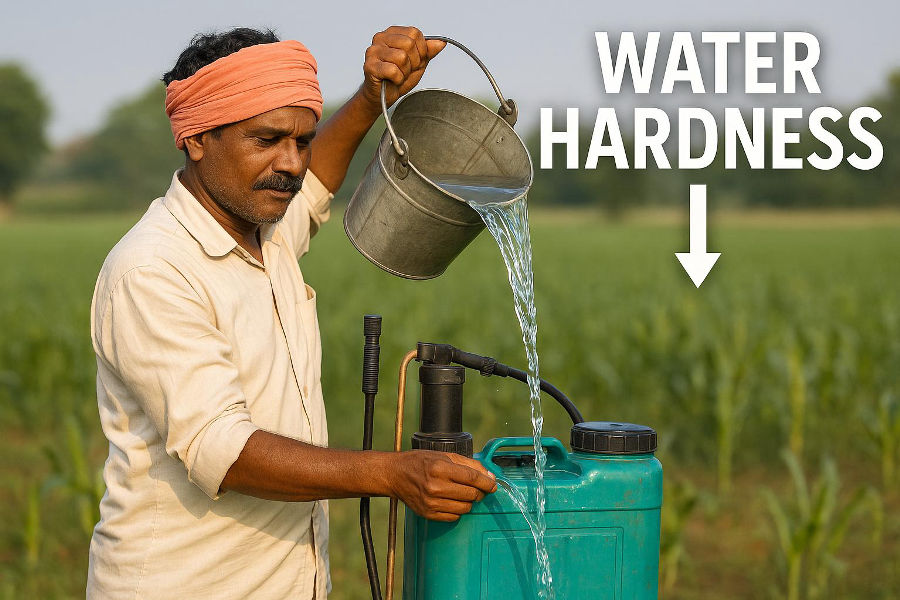Understanding water hardness in agriculture
Water hardness is a key factor in farm water quality. It refers to the amount of calcium and magnesium minerals in water. High levels make water "hard," which can affect crop health, spray performance, and irrigation systems.
why water hardness matters
-
reduces fertilizer efficiency – hard water forms insoluble salts with nutrients like phosphorus, limiting plant uptake.
-
weakens sprays – pesticides and fungicides lose effectiveness when mixed with hard water.
-
blocks irrigation lines – mineral deposits clog drip and sprinkler systems.
-
alters soil pH – long-term use of hard water increases soil alkalinity, reducing nutrient availability.
how to identify and manage hard water
-
Use a basic water testing kit or send samples to a lab.
-
White deposits on pipes or tanks may signal hardness.
-
Add 1% urea or ammonium sulfate to spray water to reduce hardness effects.
-
Use water conditioners or acidifiers for better nutrient and chemical absorption.
-
Regularly clean irrigation systems to prevent salt buildup.
